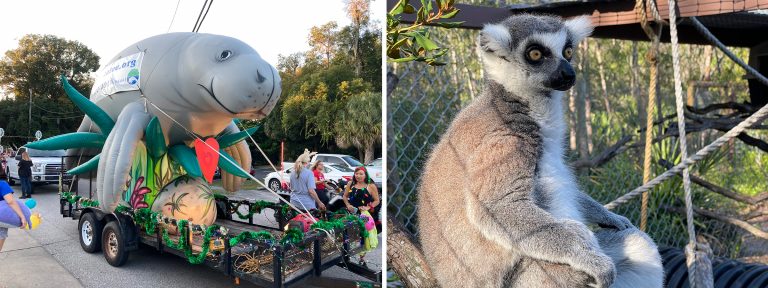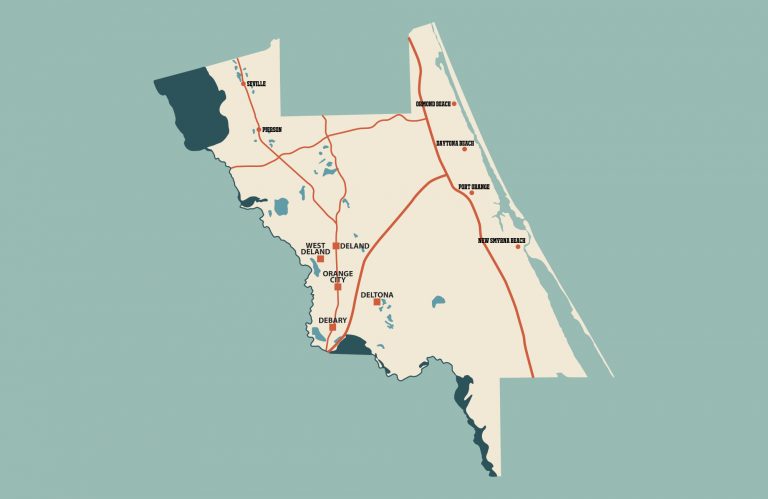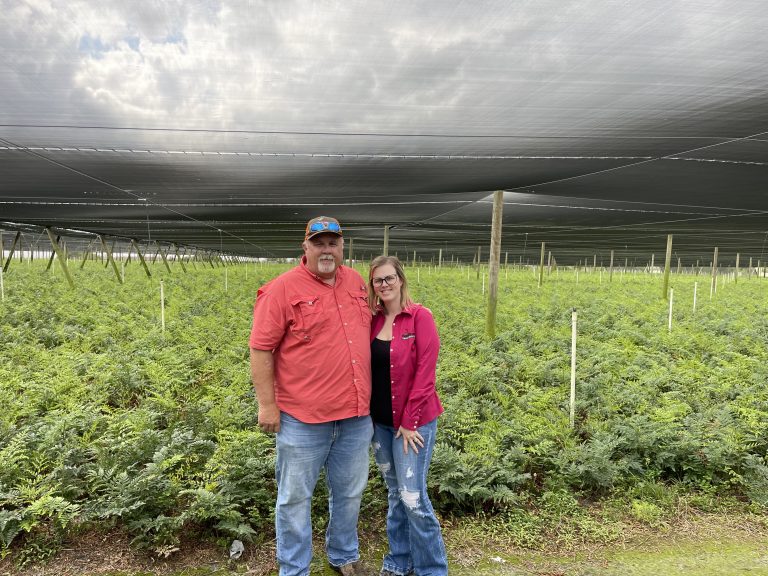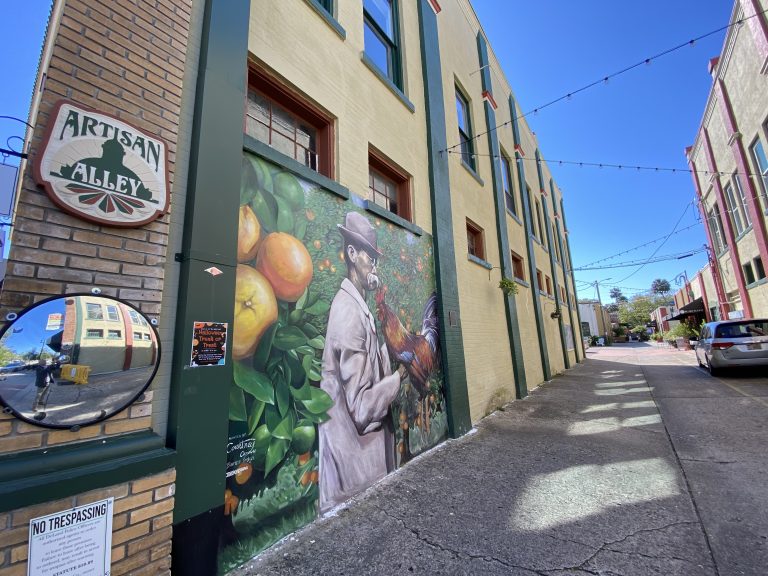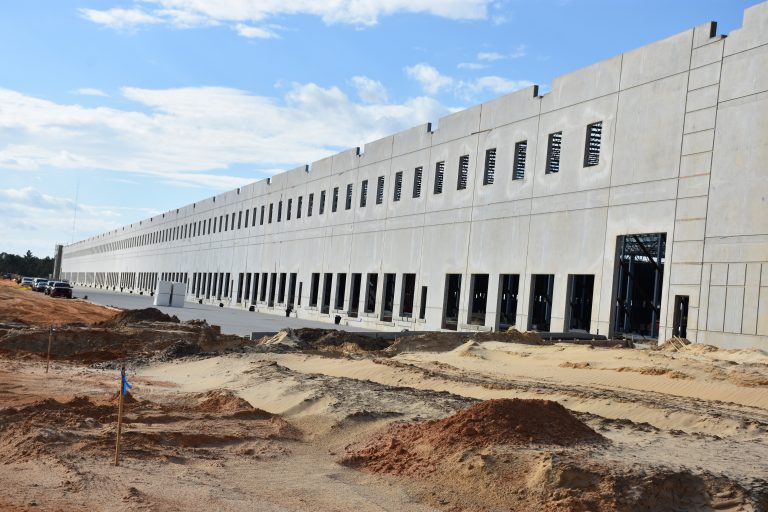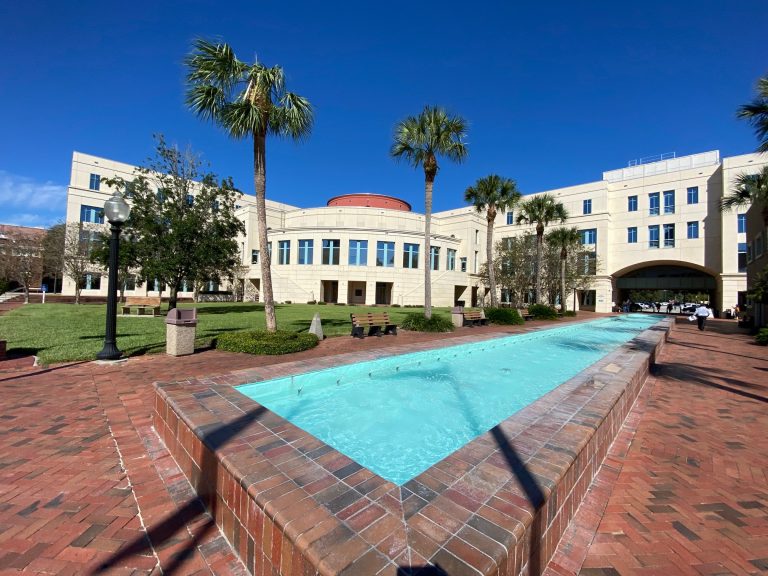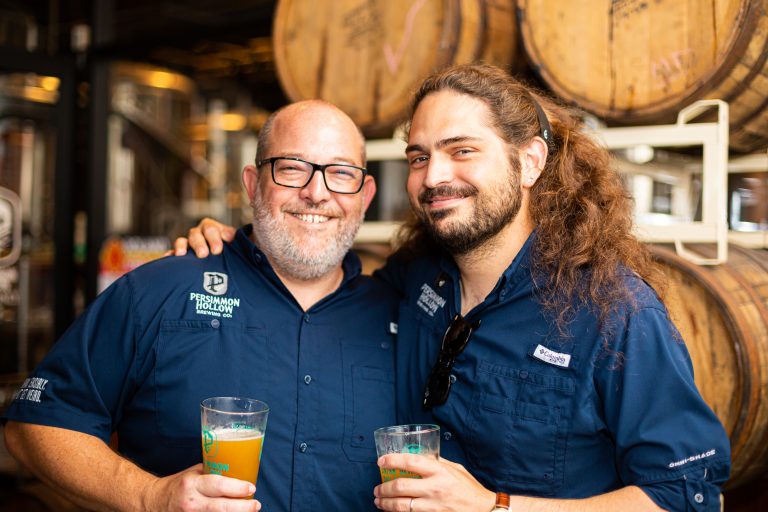Riverfront Community Holds Onto History Through Responsible Development
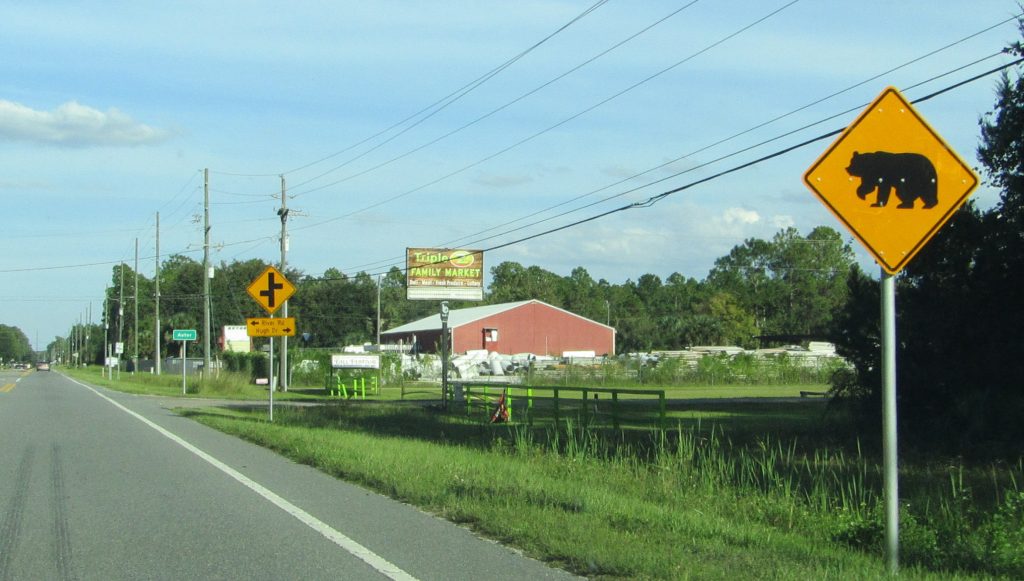
Head west on State Road 40 and you’ll get a glimpse of some of the more rural communities in Volusia County. Take just a few blinks and you might miss the town of Astor.
The River’s Keepers
Welcoming visitors to the community nestled along the St. Johns River, the Powell family has been building businesses and creating jobs in the Astor area since the 1960s.
As owners of Powell’s Campground and St. Johns River Campground, James Powell says their locations are popular destinations for travelers, especially snowbirds, who return annually helping support the area’s tourism-based economy.
As the head of the Astor Area Chamber of Commerce, Powell has his finger on the pulse of the business communities in Astor and Astor Park in Lake County and Volusia, Barberville, Emporia and Pierson in Volusia County.
“That’s really what we are, is a tourist destination,” said Powell, preparing to welcome back winter travelers after a particularly good summer for area businesses.
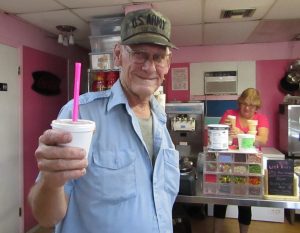
Filled with homegrown, local businesses, the Astor area is a place where people like Denise Pierce, proprietor of Samies Sweet Shop, know each of their customers’ names and, in Denise’s case, the flavor of ice cream they prefer. This slice of small-town Americana is an ode to the days of yesteryear, and some locals hope, in a state welcoming more than 1,000 new residents a day, growth won’t move too fast as it is in other parts of the state.
“This is a slow day. The weekends are insane,” said Pierce, whipping up an extra thick chocolate milkshake for Robert Gustafson. Gustafson, whose family has lived in the area long enough to have a road named after them, recalls his father’s early 1900s homestead located down the highway at the Wildwoods Campground and when the city made a major upgrade in 2001.
“We got city water. That’s one good thing that happened,” said Gustafson.
While the Powell and Gustafson families have been among the long-term local families watching the area slowly grow, they aren’t the only ones.

Stop into Sparky’s Place, and 37-year-old Krystal Lightfoot, a fifth-generation Astorian, can tell you the history of the Trip Advisor-rated restaurant’s expanded footprint while at the same time wistfully reminiscing about the days when the road through town was still dirt and a ferry shuttled folks across the river.
“It has grown a lot from the time I was a kid,” said Lightfoot.
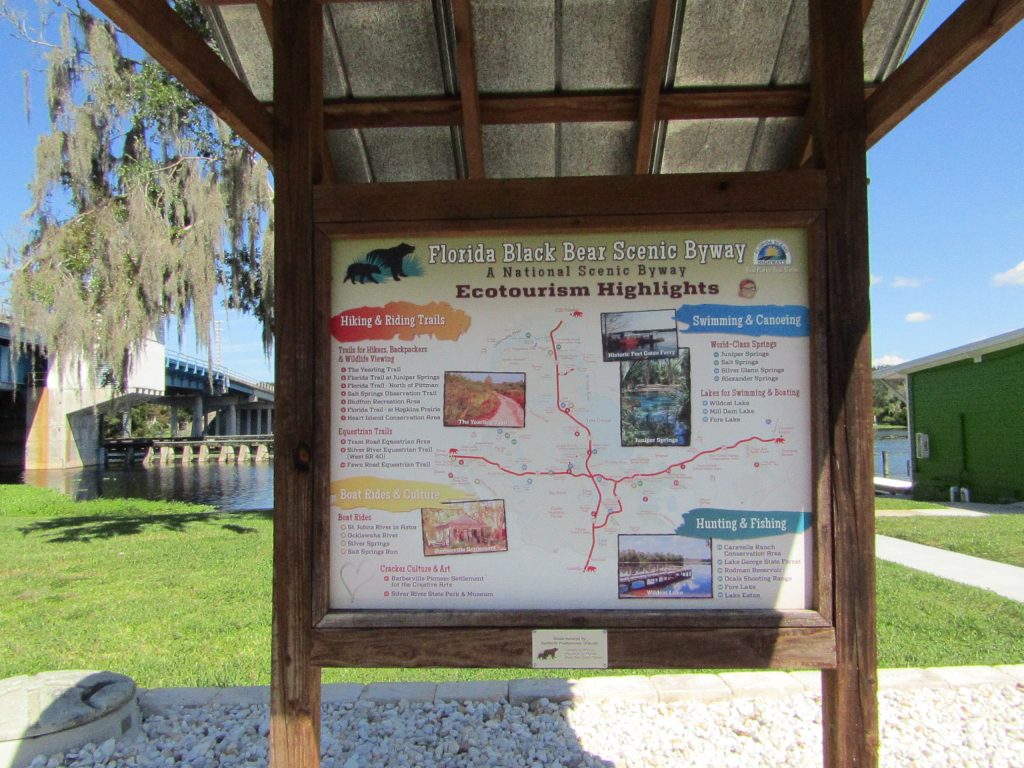
Now that SR 40 is a busy state road leading tourists into town and through the region, she’s hoping for modern amenities such as lights, possibly four-laning the highway and the addition of a multi-use trail for bicycle and pedestrian use to keep up with the influx of people discovering Astor.
The Florida Department of Transportation is currently conducting a 27-mile corridor planning study for the multi-use trail along SR 40, including Astor and Astor Park.
“I’m happy to see it growing, develop[ing] into something bigger,” she said.

Touting Tourism – Leveraging Natural Resources
Bisected by the St. Johns River, landmark restaurants like Drifters Riverfront Bar & Grill (previously the Blackwater Inn) overlooking the natural habitat of the riverfront are popular with travelers along SR 40, also known as the Florida Black Bear Scenic Byway.
West Volusia touts its ecotourism assets, such as hiking and riding trails, boat rides and culture, swimming and canoeing at the nearby springs and hunting and fishing. Kristee Booth, vice chair of the Florida Black Bear Scenic Byway, credits these hidden gems of natural beauty along the scenic byway with helping people discover the Astor area while providing a positive economic impact.
“People come to the byway to learn of the history and other opportunities for things to do along the byway,” said Booth.
“There are recreational people who come because they know of the forest and recreational things to do there. They come and buy lunch or dinner and perhaps go for a kayak or a hike. We also see driving and motorcycle enthusiasts,” she said.
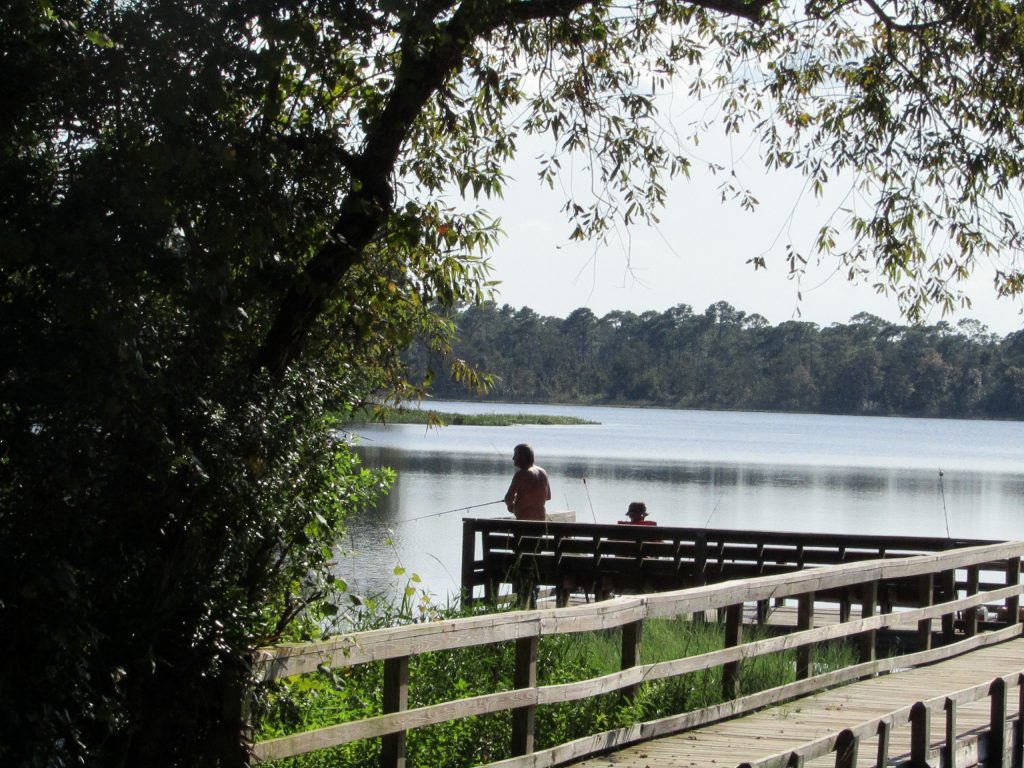
Managing Growth and Development
While it may not have been called ecotourism in the late 1880s when the famed Astor family first invested in the Central Florida region, their plans included ways to capitalize on the area’s natural resources to draw visitors to the budding settlement.
Unfortunately, with the passing of John Jacob Astor on the Titanic came the closing of a chapter in history.
“There were big plans for Astor with railroads and hotels and steamships and paddle wheels,” said Powell. “When John Jacob Astor died, it got pushed by the wayside.”
Powell’s family, arriving in the mid-60s, helped build much of Astor’s infrastructure, a history he’s proud to share.
“They were instrumental in building a lot of stuff around here,” said Powell, counting a grocery store, gas station, parts store, repair shop, the marina and cabins to their contributions.
Leading the area’s Chamber of Commerce, he’s pleased to see additional investments being made to transform the dilapidated 90-acre Jungle Den, once a thriving restaurant, hotel and mobile home park on the east bank of the St. Johns River, set for redevelopment.
Approved in November 2020 by the Volusia County Council, the $30 million project is expected to create between 40 and 50 jobs. A report in the North Lake Outpost describes demolition work in 2022 with the highly anticipated redevelopment to include a hotel, restaurant, supply store, RV hookups and a sheriff’s substation.
“You don’t want to see your little town grow too much, but I think that we’re on the right path,” said Powell.
“We’ve got a resort that’s supposed to be coming in where Jungle Den used to be, a lot of nicer housing is coming in, so I see our little river community blossoming and expanding and becoming a really nice community,” he said. “I think it’s going to be beneficial for all of us for something like that to come in to bring more people to our area.”

